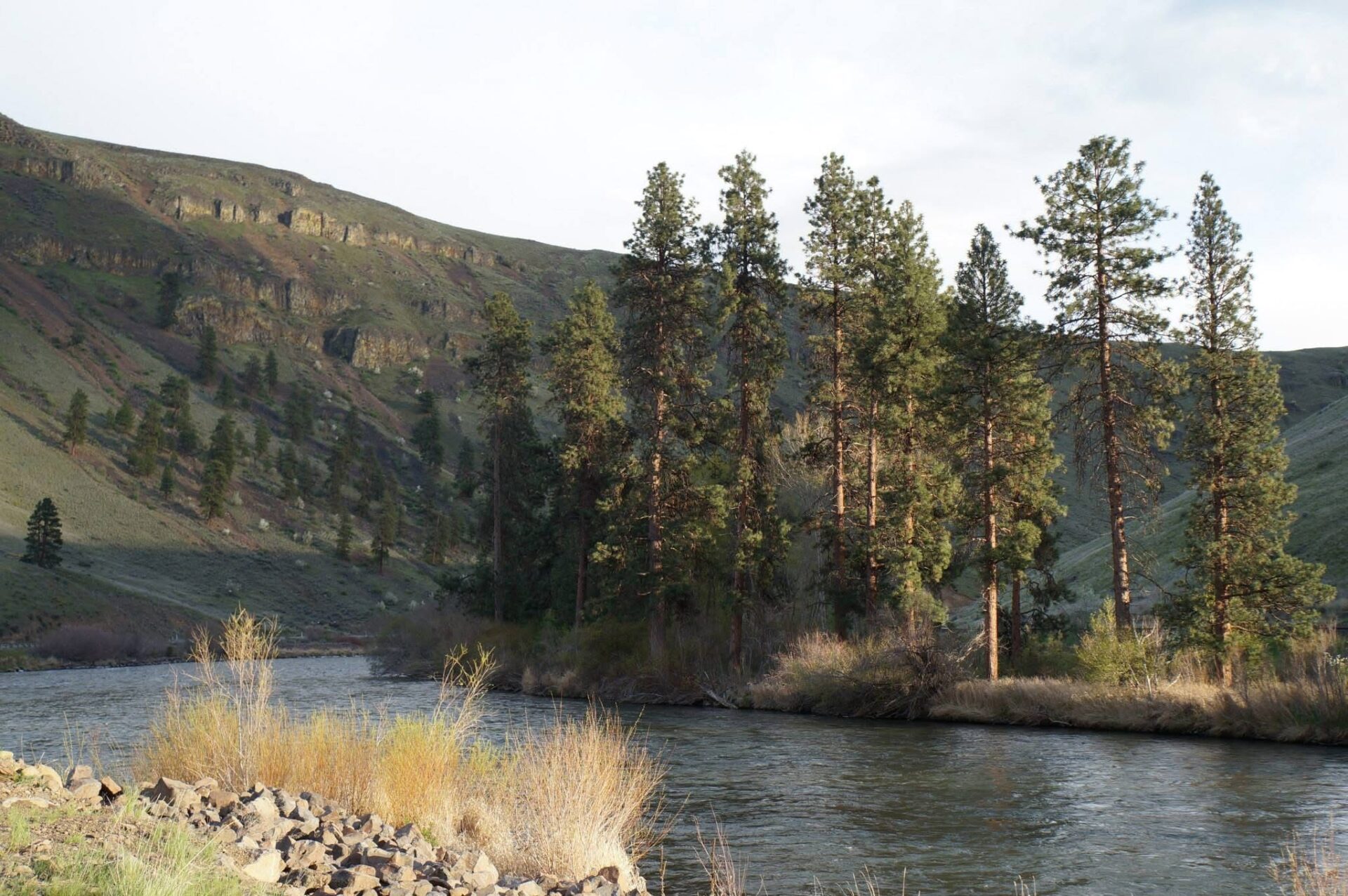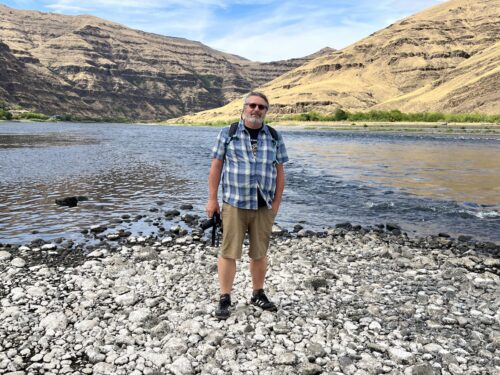A new proposed federal rule from the Trump Administration revives a long-standing effort to deregulate…

2024 Legislative Session Update
The 2024 legislative session is underway, and despite it being a short session, we have been busy! CELP’s Executive Director, Trish Rolfe, and CELP board members have been meeting with leaders in Olympia each week to ensure smart water policy decisions are being made. We will add the latest information to this page as the session progresses so keep checking back!
This session CELP has proposed a budget proviso that would be an important step in modernizing water law. We know that climate change is impacting our water availability due to changes in precipitation. To ensure adequate water is available to meet both consumptive out-of-stream uses and sufficient instream flows, new data, enhanced analytics, and a platform for information dissemination are needed. This requires a focused effort to modernize our water resource data.
This revised proviso was not as extensive as CELP originally envisioned, mainly because it 1.) is limited to integrating only Ecology’s databases, 2.) omits the critical data metrics of precipitation, temperature and streamflows, and 3.)fails to ensure the database will be used to incorporate climate change impacts into local and regional plans. However, Ecology has assured us that this proviso is only a first step and that it will seek more funding in future years to develop an expanded and more useful database.
CELP believes that this is a solid first step toward better decision-making as we plan for the impacts of climate change on Washington’s waters.
2.5.24 Status: has been submitted for inclusion in the budget
2.8.24 Status: In discussion with Ecology regarding wording
2.9.24 Status: Submitted the following UPDATED IT Proposal Proviso Language in partnership with the Department of Ecology:
$411,000 of the of the general fund—state appropriation for fiscal year 2025 is provided for the department to initiate the development of a statewide web map tool to integrate Ecology water resources management databases. Data elements to integrate include water right records and geospatial information, mitigation and water banks, and metering data. This web map will provide the public with an interactive online mapping system, focused on water resource data that enables users to access, visualize, and use improved water data.
-
The department will consult with local and tribal governments to identify the most useful data elements and analytics to incorporate into an enhanced water resource management tool and will use this information to prioritize future tool enhancements.
-
The department shall provide a status update on the data integration project to the appropriate committees of the legislature and to the Office of Financial Management by June 30, 2025, which will report on: work completed to date, recommendations for priority tool enhancements to support decision-making, planned work for fiscal year 2026, and future budget needs required to complete the development of an enhanced water resource management tool and maintain it on an ongoing basis.
This revised proviso was not as extensive as CELP originally envisioned, especially because it does not explicitly mention Tribal involvement and other data metrics like precipitation and streamflows. However, this first step is a solid start toward transparency and a better understanding of gaps in our current water data, which will assist us as we plan for the impacts of climate change on Washington’s waters.
Several bad water bills are being considered in Olympia, keeping us on our toes as we ensure instream resources are protected:
SB 5517 FOSTER Task Force Recommendations is back for another round and has moved to Senate Ways & Means. This bill would allow cities to get new water permits for projected growth even if it would impair river flows set by rule. It would allow cities to mitigate the use by making habitat improvements instead of mitigating with water, leaving the actual impacted stream to potentially drop below minimum instream flows needed for salmon and other instream uses. It would also allow them to pay a fee in lieu of mitigation with no requirements that those funds be spent on improving flow.
- 1.20.24 Status heard
- 2.5.24 Status: waiting
- 2.6.24 Status: dead, to be finalized on Tuesday, Feb. 13th.
CELP opposes because:
Allowing out-of-kind mitigation will lower water levels in rivers and streams when fish need them the most, greatly hampering the multimillion-dollar efforts by the state to restore wild salmon runs.
- Allowing impairment of instream flows would lead to curtailments of water rights holders who are junior to the instream flow, most of whom are small farmers.
- Groundwater modeling is the best science we have available.
- The conservation requirements are already required and are weak.
- Fee in lieu of mitigation will result in no mitigation at all.
HB 2187 Family Farm Act is a bad bill that would allow “family farms” to receive new water regardless of the impact on stream flows. This bill would require ecology to determine that new permanent water permits for “family farms” could impair instream flows by saying that they are in the public interest.
2.5.24 Status: did not pass
CELP opposes because:
- The definition of “family farm” is problematic: “fewer than 20 miles from a city with a population greater than 150,000, in continuous operation for more than 100 years, producing fresh fruits and vegetables for urban residents”.
- Many of these farms produce marginally related “food crops” (ie: feed for stock), or food crops for export, not for local urban consumption.
- This Act also seeks to protect access to water for industrial, commercial, hydroelectric power production, mining, recreational, and thermal power production purposes, and preservation of environmental and aesthetic values, not just “family farms.”
- Farms can already get new water permits subject to stream flows set by rule.
- Permanent or temporary appropriations of water that have adverse impacts on already protected instream flow should not be permitted unless it is a public health emergency.
HB 2105 the Water Resource Mitigation bill, like SB5517, would also provide a structure for cities to get new water for growth in closed basins or where the stream flows are not being met, however, it would require water for water mitigation but allow in not be in time or in place of the flow impairment. It was presented as an alternative to SB 5517.
In week 3, CELP signed in as “other with concerns” because it still allows impairment of flows with the caveat that it is replaced elsewhere or at another time. We prefer stronger conservation requirements of the permittee and that the state should create a grant or loan fund to help small cities mitigate water for water.
- 2.5.24 Status: Did not pass
SB 6062/HB2299 Concerns the authority of the Department of Natural Resources to lease trust assets for the benefit of trust beneficiaries and the state.
- 1.26.24 STATUS: CELP offered two amendments
- 2.5.24 STATUS: In Rules without our amendments
- 2.9.24 Dead
CELP opposes because:
- DNR wants to lease existing water rights to generate revenue to offset financial loss caused by the impacts of climate change.
- Some of these water rights may be “Senior water rights,” giving them priority for water over stream flows set by rule.
- The water is currently not being put to consumptive use, so leasing it would impact flows for fish and other instream uses.
- A DNR water bank could encourage Wall Street speculators to buy up the leases, raising the cost of water to mitigate flows.
- DNR has said that this will help them with drought resilience, but leasing water for out-of-stream uses would harm fish during drought and leave less water available for DNR to use to combat drought.

CELP Budget Proviso



